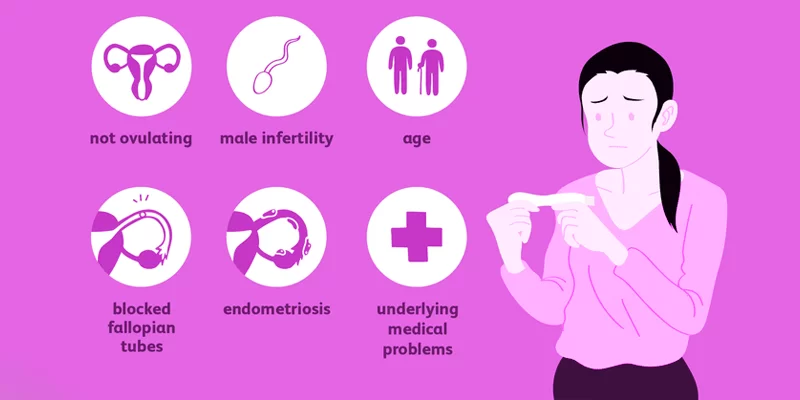The Emotional Journey of Infertility

Infertility can be a difficult and emotional journey for many couples, affecting not only their physical health but also their mental well-being. Trying to conceive can bring a host of challenges and emotions, including stress, depression, anxiety, and feelings of hopelessness. For many couples, infertility can also take a toll on their relationship, leading to feelings of isolation, anger, and sadness. The stress of infertility can be overwhelming, especially when couples are faced with repeated negative pregnancy tests, unsuccessful treatments, and the pressure to have a child. It can be difficult to manage the constant ups and downs of the journey, leading to feelings of depression and anxiety. These emotions can also affect self-esteem and self-worth, leaving couples feeling hopeless and alone. It is important for couples facing infertility to understand that they are not alone and that there are resources available to help them cope with their emotions. Some ways to manage stress and depression include seeking support from friends, family, or support groups, practicing mindfulness and relaxation techniques, and seeking counseling or therapy. Couples can also find comfort in knowing that they have options to build their family, including assisted reproductive technologies, adoption, and surrogacy. Infertility can be a difficult journey, but it is possible to find hope and healing. Couples should reach out for support and not be afraid to ask for help. It is also important for society to break the stigma surrounding infertility and to provide a supportive environment for those who are facing it. In conclusion, infertility can bring a range of emotions and challenges, but couples can find ways to manage their stress, depression, and anxiety. With the right support and resources, couples can find hope and healing on their journey towards building their family.
How to increase fertility in women

Fertility is a major concern for many women who are trying to conceive. There are several factors that can affect a woman’s ability to conceive, including age, health, and lifestyle choices. Fortunately, there are several steps women can take to increase their fertility and improve their chances of becoming pregnant. Maintain a Healthy Weight Maintaining a healthy weight is essential for improving fertility in women. Being overweight or underweight can disrupt the menstrual cycle and make it difficult to conceive. Women with a body mass index (BMI) of 25 or above may have difficulty getting pregnant, while those with a BMI of 18.5 or below may have irregular periods or stop ovulating altogether. Eating a balanced diet and exercising regularly can help women maintain a healthy weight and improve fertility. Monitor Ovulation Ovulation is the process by which an egg is released from the ovaries and is available for fertilization. Women who are trying to conceive should track their ovulation cycle to determine when they are most fertile. This can be done using ovulation prediction kits or by monitoring changes in cervical mucus. Women should aim to have sex during their fertile window, which typically occurs 12 to 14 days before the start of their next period. Reduce Stress Stress can have a negative impact on fertility in women. When the body is under stress, it releases hormones that can disrupt the menstrual cycle and make it difficult to conceive. Women who are trying to conceive should find ways to manage their stress, such as through exercise, meditation, or yoga. They should also try to get plenty of sleep and avoid caffeine and alcohol, which can exacerbate stress. Quit Smoking Smoking can have a significant impact on fertility in women. It can damage the ovaries and reduce the quality and quantity of eggs, making it harder to conceive. Women who smoke should quit as soon as possible to improve their chances of becoming pregnant. Quitting smoking can also improve overall health and reduce the risk of complications during pregnancy. Limit Alcohol Consumption Excessive alcohol consumption can also have a negative impact on fertility in women. It can disrupt the menstrual cycle and reduce the quality of eggs. Women who are trying to conceive should limit their alcohol consumption or avoid it altogether. Take Prenatal Vitamins Taking prenatal vitamins can help improve fertility in women. Prenatal vitamins contain folic acid, which is essential for fetal development and can also improve the chances of conception. Women should start taking prenatal vitamins before they start trying to conceive and continue taking them throughout pregnancy. In conclusion, there are several steps women can take to increase their fertility and improve their chances of becoming pregnant. Maintaining a healthy weight, monitoring ovulation, reducing stress, quitting smoking, limiting alcohol consumption, and taking prenatal vitamins are all effective ways to boost fertility. By following these steps, women can increase their chances of conceiving and having a healthy pregnancy.
